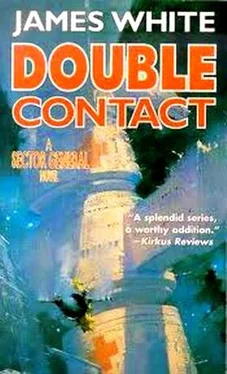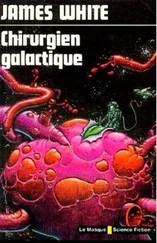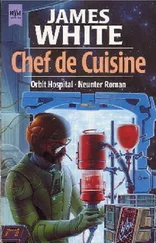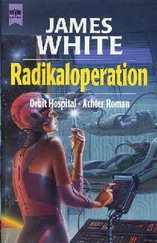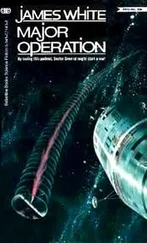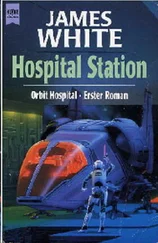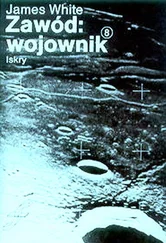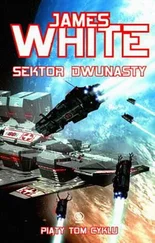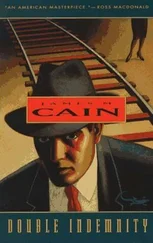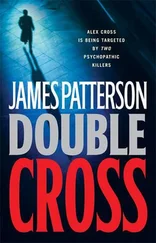Prilicla had a question but Murchison asked it for him. Quickly it said, “Are you sure that your subject isn’t alive now?” “Don’t worry, ma’am,” the captain replied. “How sure would you be if your subject’s brain and heart had been burned to a crisp? Besides, its muscles — I mean its actuator linkages— are designed for light, precise work and are not all that robust. Physically it would not represent a serious threat" — it smiled— “except possibly to Dr. Prilicla.”
Murchison returned the other’s smile, because practically everything larger than an Earth kitten was a serious threat to Prilicla.
Something else is worrying me,” Murchison said, “I watched your internal scanner examination, Captain, and saw that the subject’s body is solidly packed with circuitry, metal musculature, and sensory receptors. But why is it that particular shape?”
Fletcher remained silent, radiating the confusion and impatience characteristic of a mind that had been expecting a different question.
“Robotics isn’t my specialty,” Murchison went on, “but isn’t it usual for one to be mechanically more functional? I mean, shouldn’t it basically be a box with locomotor appendages simpler and more versatile than the six limbs we are seeing here; with a variety of specialized manipulators sprouting out of the body without regard to aesthetic balance; and with all-around visual sensors instead of just two in the head section? If this thing had been normally organic we would classify it as a CHLI. Rather than adopting a functional robotic shape, it seems clear that this body configuration is decidedly organimorphic. My question is, why would a non-organic intelligence copy itself on a CHLI?”
“Sorry, ma’am,” the captain replied, looking and feeling apologetic. “I have no answers, just a wild guess.”
Murchison nodded and said, “Which is?”
The captain hesitated, then said, “This isn’t my field, either. But think about the evolution of an organic life-form as opposed to that of an intelligent machine. Ignoring the religious perspective, the first begins as an accidental grouping of simple, cellular forms which takes several millions of years of environmental adaptation with other competing species to become the dominant intelligence. The second doesn’t do anything like that because, no matter how long it is given, a simple tool like a monkey wrench can never evolve through the intermediate stage of a lawn mower to become a superintelligent computer, at least, not without outside help. That simple tool has to be created by someone in the first place, and at some later stage the creator has to provide the machine with self-awareness and intelligence. Only then would there be the possibility of further self-evolution.
“I’m speculating, of course,” the captain went on, “but a further possibility is that the beings who first bestowed on their machines the gift of self-aware, intelligent life are a permanent part of their racial memory — or inherited design — and that they made, or in gratitude made the choice to remain, in their CHLI creators’ image.”
“In your opinion, friend Fletcher,” Prilicla asked, “would this entity have been capable of disabling a starship?”
“No, Doctor,” the captain replied firmly. “At least, not directly. Although composed of metal with plastic-insulated circuitry, the appendages were designed for precise and delicate work rather than hard labor or fighting, although there would have been nothing to stop it using those digits, as we DBDGs have been known to do, to operate a variety of destructive weapons. I’ll be looking for anything like that when I’m searching the ship. All the evidence points to our robot friend being dead on arrival, and the type of heat and blast injuries it sustained were too unfocused to be caused by a Corps hand-weapon.
“And now,” it went on, looking at the opened seams in the hull plating of the ship all around them, “I have to examine the body of a larger, metal cadaver, one that is more familiar to me.”
Prilicla used his antigravity belt to move outside and fly forward to the control deck while Murchison stayed with the captain, both to satisfy its curiosity and to help move aside troublesome debris. There was minimal risk because both of them were experienced in negotiating ship wreckage, and he was pleased that neither their voices in his headset nor their feelings indicated that they were taking risks.
When they rejoined him, the two crescents of facial fur oove the captain’s eyes, and its emotional radiation, were indicating extreme puzzlement. / '
I don’t understand this,” it said, gesturing aft. “Discounting the effects of atmospheric heating and buffeting on the hull the way down, the ship’s systems and linkages — power, guidance life support — are all in pretty good mechanical order. Why should one of the officers have had to go aft to operate the main thrusters on manual? But that is what he did, and the answer has to be here somewhere in control.”
“Including, friend Fletcher,” said Prilicla, “the reason why the casualties wanted us to stay away from their ship?”
“That, too, Doctor,” it replied. “And thank you for the reminder and gentle warning, which I’m pretty sure is unnecessary. Pathologist Murchison reported earlier that, apart from their severe burn trauma, there is nothing clinicallyabnormal about the patients’ condition. On the way here she also told me that the only microbes present were the usual harmless, Earth-human bugs that came on board with them and were trapped in the air-circulation system, plus a few airborne varieties native to this world which cannot cross the planetary species barrier and so need not concern us.
“I agree with everyone exercising a high degree of caution,” it went on, its feelings if not its voice registering impatience, “but surely it is no longer necessary to wear sealed suits, or for your team to continue working in an isolated, prefabricated unit with limited facilities rather than on Rhabwar’s casualty deck. There is nothing to threaten us here.”
“It must be nice,” said Murchison, radiating sarcasm, “to feel so sure of yourself.”
“Friend Fletcher,” Prilicla said quickly, in an attempt to reduce its growing irritation and head off a possible exchange of verbal violence, “no doubt you are quite right in everything you’ve said, but I, for physiological reasons that have made my people a species of arrant cowards, am extremely cautious. Please humor me.”
The captain nodded and its feelings once again became calmly analytical as it began its examination of the damaged control consoles around them. It trained the vision pickup on each and every item and discussed its observations for the recorders. Apart from a few minutes checking with Naydrad on the condition of the casualties, they watched in silence the progress of a technically-oriented postmortem as painstakingly thorough as any the pathologist had performed on organic cadavers. Prilicla had always derived pleasure from watching an expert at work, and he knew that his feelings of appreciation and admiration ere being shared by Murchison. But finally the work was done and the captain was staring at them with an expression and emotions that could only be described as a large and perplexed question mark.
“This doesn’t make sense,” it said. “The main and secondary computer systems are down. That shouldn’t happen. They are strongly encased, protected physically and electronically in case of damage during a major malfunction or collision. They perform the function of the black boxes in atmosphere craft so that, in the event of an accident, the investigators have some idea of what went wrong. But there was nothing structurally wrong with Ter-ragar except that all its computers are dead, or as good as. This is ridiculous. With all our fail-safe systems and protective devices,
Читать дальше
